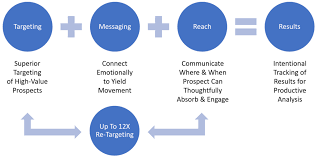The Fundamentals of Basic Marketing
Marketing is the cornerstone of any successful business strategy. It is the process of promoting and selling products or services to attract and retain customers. Basic marketing involves fundamental principles that form the foundation for all marketing activities.
Understanding Your Target Audience
One of the key aspects of basic marketing is identifying and understanding your target audience. By knowing who your potential customers are, their needs, preferences, and behaviours, you can tailor your marketing efforts to effectively reach and engage with them.
Creating a Strong Value Proposition
A value proposition is a statement that communicates the benefits and value that your product or service offers to customers. It should clearly articulate why your offering is unique and why customers should choose it over competitors. A strong value proposition forms the basis of your marketing messaging.
Utilising Multiple Marketing Channels
Basic marketing involves using a mix of different channels to reach your target audience. This can include digital channels such as social media, email marketing, and online advertising, as well as traditional channels like print media, television, and direct mail. By diversifying your marketing efforts across multiple channels, you can increase visibility and reach a wider audience.
Measuring and Analysing Results
An essential aspect of basic marketing is measuring the effectiveness of your efforts. By tracking key performance indicators (KPIs) such as website traffic, conversion rates, and customer engagement metrics, you can evaluate the success of your campaigns and make data-driven decisions to improve future marketing strategies.
Conclusion
In conclusion, basic marketing lays the groundwork for building successful marketing campaigns that drive business growth. By understanding your target audience, creating a compelling value proposition, utilising multiple channels, and measuring results, you can develop effective marketing strategies that resonate with customers and drive business success.
Essential Marketing FAQs: Understanding Fundamentals, Strategies, and Effectiveness
- What is marketing and why is it important?
- How do I identify my target audience?
- What are the key components of a successful marketing strategy?
- How can I measure the effectiveness of my marketing campaigns?
- What are some common marketing channels to reach customers?
What is marketing and why is it important?
Marketing is the strategic process of promoting and selling products or services to attract and retain customers. It plays a crucial role in the success of any business by creating awareness, generating interest, and ultimately driving sales. Marketing is essential because it helps businesses communicate their value proposition to target audiences, differentiate themselves from competitors, build brand loyalty, and ultimately drive revenue growth. By understanding customer needs and preferences, identifying market opportunities, and effectively communicating with consumers, marketing enables businesses to connect with their target audience and achieve their business objectives.
How do I identify my target audience?
Identifying your target audience is a crucial step in basic marketing. To pinpoint your target audience, start by conducting market research to gather demographic information, such as age, gender, location, income level, and interests. Analyse your existing customer base to understand who is already engaging with your product or service. Utilise tools like surveys, social media analytics, and customer feedback to gain insights into their needs and preferences. By creating detailed buyer personas based on this data, you can tailor your marketing strategies to effectively reach and resonate with your target audience.
What are the key components of a successful marketing strategy?
When considering the key components of a successful marketing strategy, it is essential to focus on several crucial elements. Firstly, defining a clear and well-researched target audience is paramount in ensuring that marketing efforts are directed towards those most likely to engage with the product or service. Crafting a strong value proposition that effectively communicates the unique benefits of the offering is also vital in capturing the attention of potential customers. Additionally, selecting the most appropriate marketing channels to reach and engage with the target audience, along with consistent monitoring and analysis of campaign performance to make data-driven adjustments, are fundamental components that contribute to the success of a marketing strategy. Ultimately, a successful marketing strategy combines these elements cohesively to create impactful campaigns that drive brand awareness, customer engagement, and business growth.
How can I measure the effectiveness of my marketing campaigns?
Measuring the effectiveness of your marketing campaigns is crucial to understanding their impact and making informed decisions for future strategies. One common approach is to track key performance indicators (KPIs) such as website traffic, conversion rates, lead generation, customer engagement metrics, and return on investment (ROI). By analysing these metrics, you can assess the success of your campaigns, identify areas for improvement, and make data-driven adjustments to optimise your marketing efforts. Additionally, conducting surveys, gathering feedback from customers, and using analytics tools can provide valuable insights into the effectiveness of your marketing campaigns.
What are some common marketing channels to reach customers?
In basic marketing, there are several common channels that businesses can utilise to reach customers effectively. These include digital channels such as social media platforms like Facebook, Instagram, and Twitter, which offer a direct way to engage with a broad audience. Email marketing is another popular channel that allows businesses to communicate directly with customers through personalised messages. Additionally, search engine marketing (SEM) and search engine optimisation (SEO) are essential for reaching customers actively searching for products or services online. Traditional channels such as print media, television advertising, and direct mail can also be effective in reaching specific target audiences. By leveraging a mix of these marketing channels, businesses can maximise their reach and engagement with customers across various platforms.
